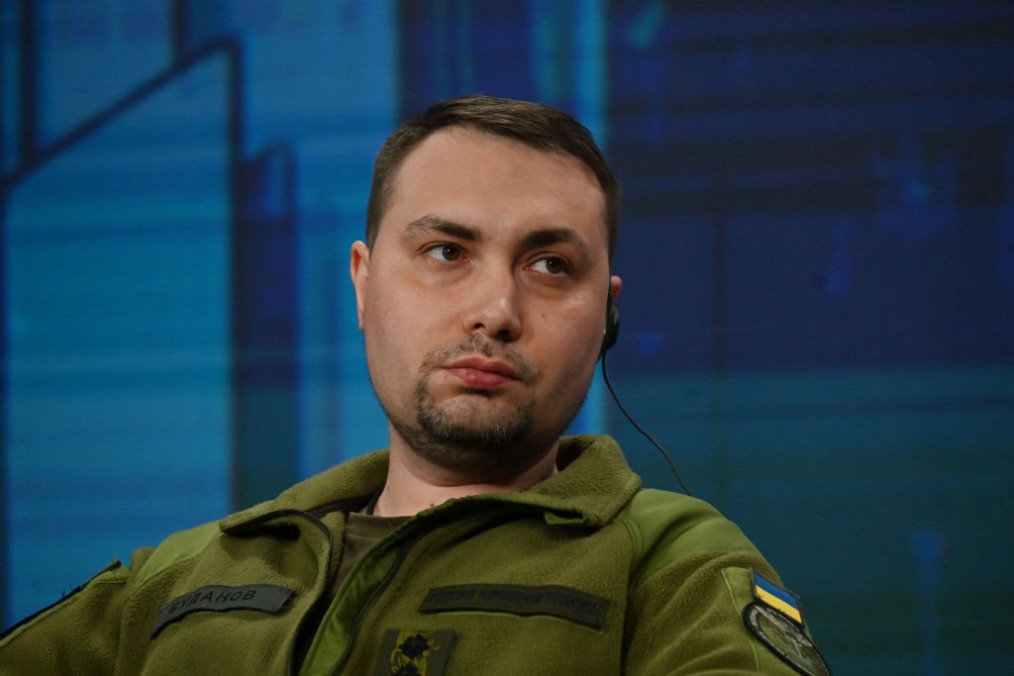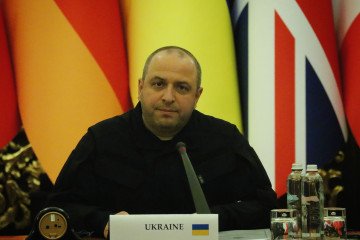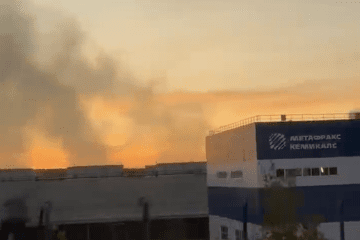- Category
- Latest news
Ukrainian Intelligence Chief Says Russian Offensive Could Be Nearing to an End

Kyrylo Budanov, head of Ukraine’s Main Directorate of Intelligence, has forecast a decline in Russian offensive operations within the next one to two months. Speaking to graduates of the Kyiv School of Economics, Budanov explained that historical patterns suggest offensive campaigns rarely extend beyond two months.
“In one and a half to two months, the main thrust (of the Russian army) should end, because the offensive has already dragged on,” Budanov said.
The intelligence chief noted that Russia’s current offensive is approaching the three-month mark and is already showing signs of decline. However, he cautioned that a temporary lull could precede renewed Russian attacks. “But we know that after a recession and a slight lull, there will be new attempts by the enemy to advance. And we are preparing for that,” Budanov warned.
Emphasizing the importance of proactive measures, Budanov posed a question: “Are we just going to sit and wait, four or five months will pass and everything will happen again. Are we going to act in advance?”
Regarding Crimea, Budanov believes that retaking Crimea will be simpler than reclaiming the Donbas region.
He argued that the Donbas presents a far more complex military challenge due to its extensive 1,000-kilometer frontline and 200-kilometer depth. In contrast, Crimea is more geographically contained, with primary access points limited to the Crimean Bridge and the Perekop Isthmus.
“From a military standpoint, recapturing Crimea is much easier,” Budanov stated. “The issue of reconquest involves dual-pronged operations: disrupting enemy communications from the Russian side and exerting pressure from our side. This combined approach would effectively isolate Crimea.”
The Ukrainian official dismissed the notion of Crimea’s impregnability, citing historical precedents of successful conquests of the peninsula. He emphasized that the key to holding Crimea lies in maintaining control of the Perekop Isthmus, a strategic chokepoint that has proven crucial in past conflicts.
“When I say we will enter Crimea, we are already entering there,” Budanov concluded on this subject.
He disclosed information regarding the Wagner mercenary group, stating that Ukrainian intelligence was aware of Wagner’s planned mutiny six months before it occurred. However, he noted that there are currently no indications of similar plots within Russia.
“If we’re talking about potential ethnic uprisings, we need a leader on the ground,” Budanov said. “We have a good candidate, but he’s currently building his capacity. Until then, we can’t speculate about anything. Nothing happens spontaneously; the Wagner mutiny was carefully planned in advance,” he added.
Regarding Yevgeny Prigozhin, the former head of Wagner, Budanov described him as a complex figure. Prigozhin reportedly intended to reach the Kremlin with the belief that he could save Russia.
“He wouldn’t save Russia; he would tear it apart. With him in the Kremlin and the nominal leadership elsewhere, the country would be irrevocably divided. He eventually halted his advance after speaking with Alexander Lukashenko,” Budanov explained.
In late January 2024, Budanov predicted the culmination of Russia’s offensive, which began in November 2023.
-ba02b3bc86f0b624f99115809a6a34d0.jpg)


-111f0e5095e02c02446ffed57bfb0ab1.jpeg)


